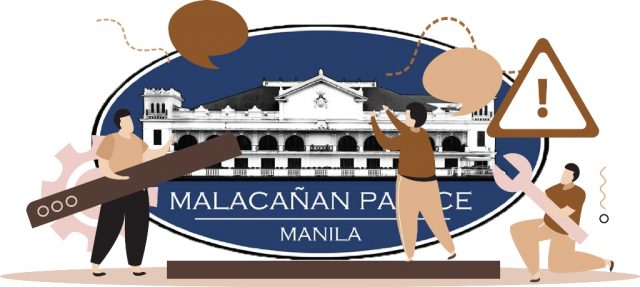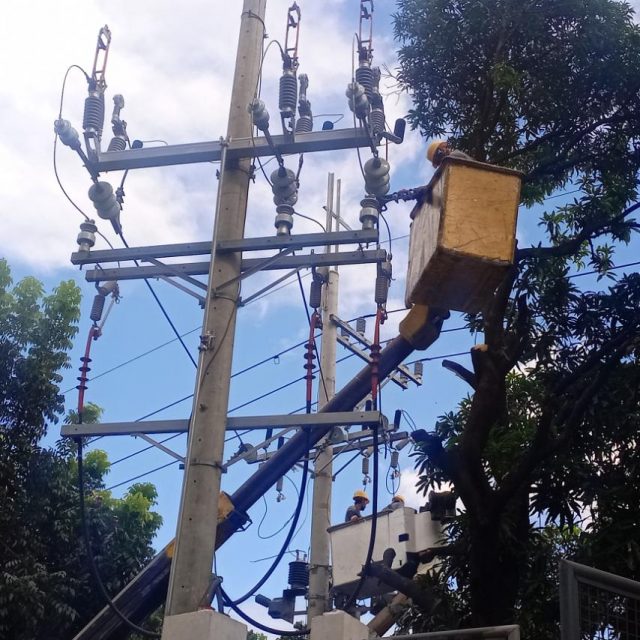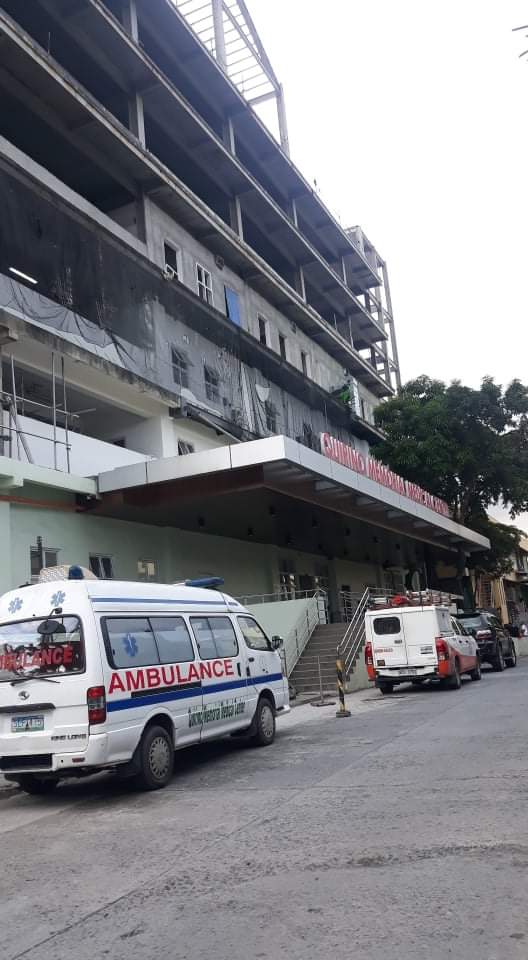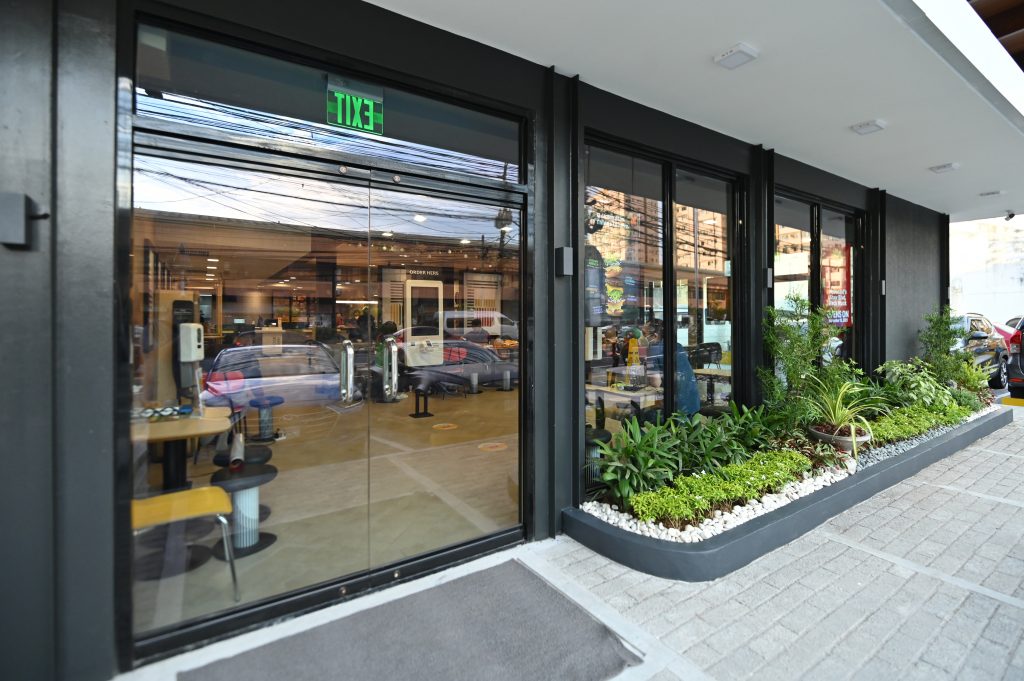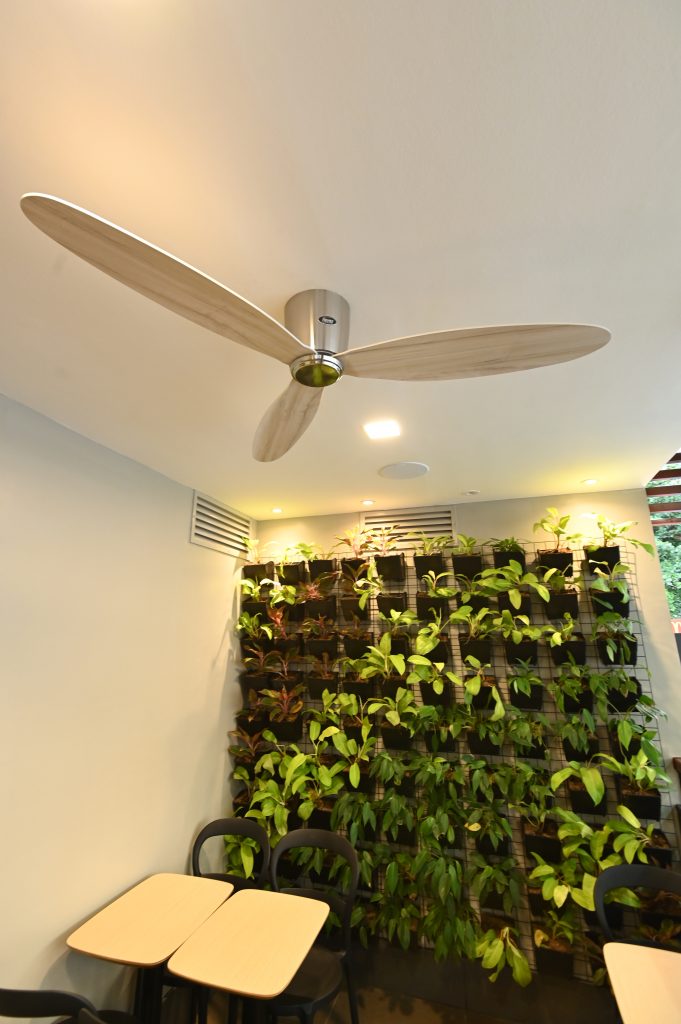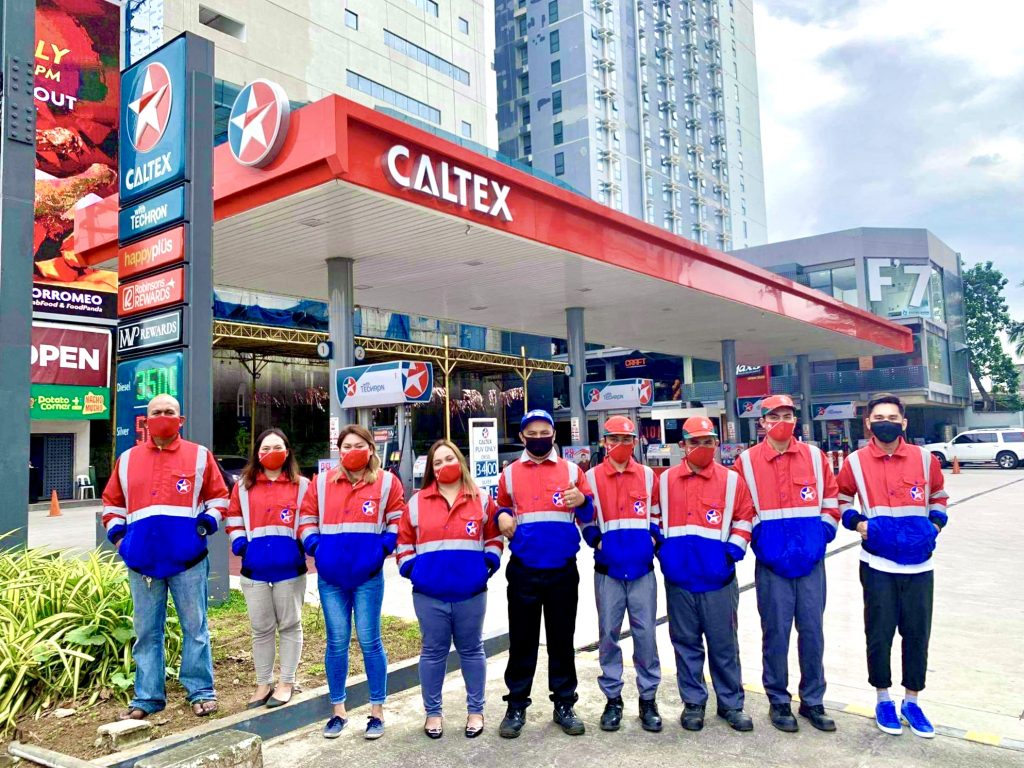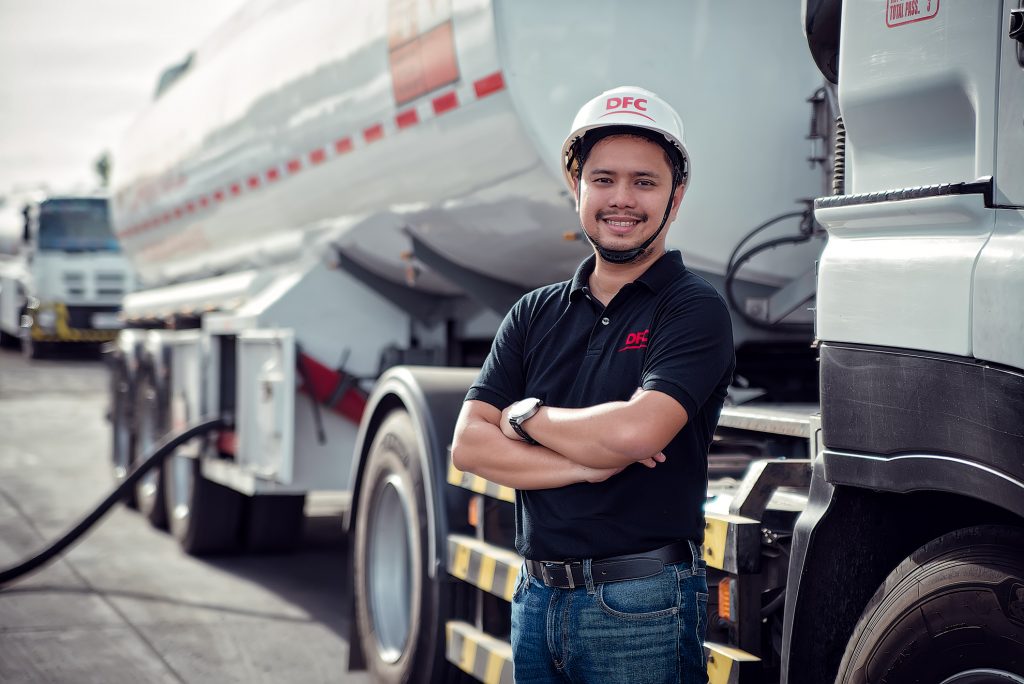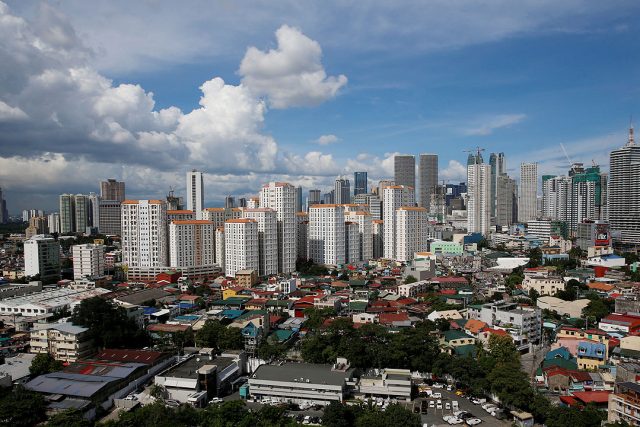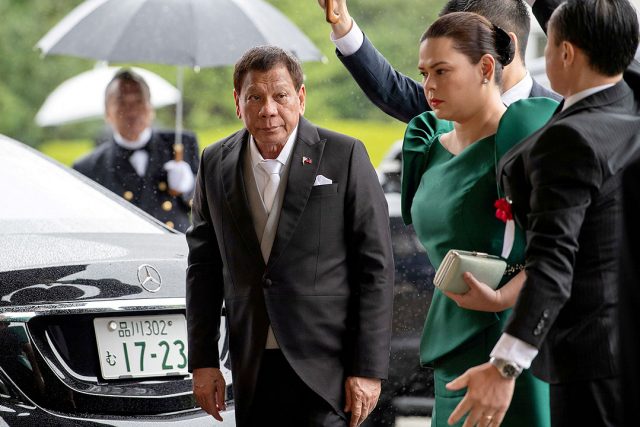Systems failure
Sara Duterte is running for Vice-President in partnership with Ferdinand Marcos, Jr., who has had his eye on the Presidency for decades. She substituted for the candidate of Gloria Macapagal-Arroyo’s Lakas-CMD for that post on Nov. 13. The party Marcos Junior is running under at the same time said it will ally with Lakas-CMD to support a Marcos-Sara Duterte team.
Both developments followed weeks of confusion over who the Arroyo-Marcos Axis would field for President and Vice-President; whether Christopher “Bong” Go will still be the PDP-Laban standard bearer; and Presi-dent Rodrigo Duterte’s cohorts’ triggering speculations over the possibility that while he had (again) announced his retirement from politics, he could still run for Vice-President or senator (whichever is convenient and fits his agenda). Mr. Duterte will indeed run in 2022 but for senator, not for VP.
This country’s power-mad politicians mock this country’s electoral process. The law allowing candidate substitutions is also one of the many anomalies that make a mess of it. And it is also another indicator of the rapid descent into systems failure of the Philippine State. That decline has visibly worsened during the rule of the Duterte clique — and it is happening not only during the country’s worst public health emergency in over a century, but also during its worst crisis in governance since the Marcos kleptocracy.
A plurality of voters elected to national office in 2016 what had hitherto been a limited provincial tyranny. Once in Malacañang, it brought with it not only the unrestrained use of State violence against the poor and govern-ment critics and dissenters, but also an army of ineffectual officials.
Past administrations have hardly been exemplars of competence, vision, or dedication to public interest. But the Duterte regime’s record of mismanagement has made it abundantly clear that it is exceptional in the gross in-capacity of its officials to do their jobs — and, in some cases, to even understand what their tasks and responsibilities are.
Unlike his hero, model and mentor Ferdinand Marcos, Mr. Duterte has never considered the fitness for a particular office of the officials he names. Martial law did not prevent Marcos Senior from recognizing the competent and appointing them to key government agencies. But Mr. Duterte did Marcos’ martial rule one better by naming most of his leading officials on the basis of either their police and military backgrounds, or their unflinching de-votion to him and his family.
Because of the sheer number of retired military and police personnel in the regime, his is the most militarized since the country regained its independence in 1946. But he has also kept in their posts officials who, for some reason, have earned and kept his confidence despite the scandals that hound them, or their demonstrated incapacity to effectively respond to the problems raised by the pandemic.
The country’s government institutions, among them those agencies most crucial to the provision of social services such as health, education, and social welfare, have only erratically provided the citizenry the medical care, social amelioration, and access to education that it needs for the country to progress or to just stay in place. But they and other government agencies have been failing even before Mr. Duterte’s troubled watch.
Every year the country has faced shortages in the number of doctors, nurses, and the other medical personnel it needs, as droves of graduates of medical and nursing schools leave for abroad in search of living wages. During the pandemic the regime could have raised salaries and allowances to keep medical workers home but did not — hence the shortage of doctors and nurses in the severely strained healthcare system.
The deterioration of education has also been ongoing, because of the corruption that, among others, consists of the approval for use in the country’s primary and secondary education levels of error-filled textbooks, and the shortfall in teachers and classrooms. At the tertiary level, some Congressmen have added to the lengthening list of State universities and colleges institutions of dubious credentials.
The economy has always been vulnerable to the vagaries of the export and import markets, and to fluctuations in the international rate of currency exchange — all of which make the employment of the millions in the coun-try’s huge labor reserves insecure and uncertain. The Philippines’ pre-industrial enterprises and the workers’ community are dependent on each other, with the former’s reliance on the continued availability of labor, and workers’ being dependent on the continued operations of the enterprises that employ them. As a huge number of small- and medium-sized enterprises went bankrupt or were forced to shut down, more than four million workers in addition to the usual legions of unemployed and underemployed lost their means of livelihood.
The number of COVID-19 infections has meanwhile risen to nearly three million, and made the full reopening of the economy problematic, with all its consequences on the deepening poverty and hunger of the poorest sec-tors of the population.
The pandemic has aggravated the long simmering crises of Philippine society, and despite regime efforts to make it appear that everything is approaching normalcy, the perennial problems in public health, education, and the economy have worsened. A more competent and less corrupt dispensation could have prevented or at least mitigated the extent of the present crisis. It would have acted quickly enough to shut down the country’s borders in 2020 and, as vaccines were developed in a number of countries, to arrange for their purchase from whatever source.
The present regime instead hemmed and hawed before it did either, and in the process lost months of precious response time. And even when visitors from China were supposedly barred from travel to the Philippines, a racket at the Bureau of Immigration and preferential treatment enabled a number to nevertheless enter the country, while the government’s preference for China-sourced vaccines prevented early on their purchase from other countries.
The resulting crisis in health thus led to the decline of the already frail economy, while it compelled the conduct of education via distance learning — which, among other problems, is hampered by limited citizen ca-pacity to access electronic devices and the country’s notoriously erratic and slow-as-molasses wi-fi connectivity.
While all this was going on and compromising the country’s future, the use of lawless State violence even against violators of health protocols never abated. Neither did the extrajudicial killings, the rampant human rights vi-olations, and the systematic erosion of the Republican principle of checks and balances.
The regime never crafted a national plan to address the pandemic, and left it to LGUs to do what they thought could contain the contagion in their jurisdictions. A futile debate over whether the wearing of face shields should still be mandatory is continuing. The holding of face-to-face classes is being pilot-tested. Restrictions in international and domestic tourism are being lifted, cinemas being reopened, and public vehicle occupancy in-creased to almost 100% despite the understandable reservations of the medical community. Chaos rather than order rules Philippine society.
It should be more than evident by now that only the election of a halfway decent, competent, and honest alternative to the present regime can at least begin the process of halting the country’s descent into failed State sta-tus. But that can happen only if the mass of the electorate has learned enough from the experience of the last six years to elect the officials the country so desperately and so urgently needs.
LUIS V. TEODORO is on Facebook and Twitter (@luisteodoro).
www.luisteodoro.com

